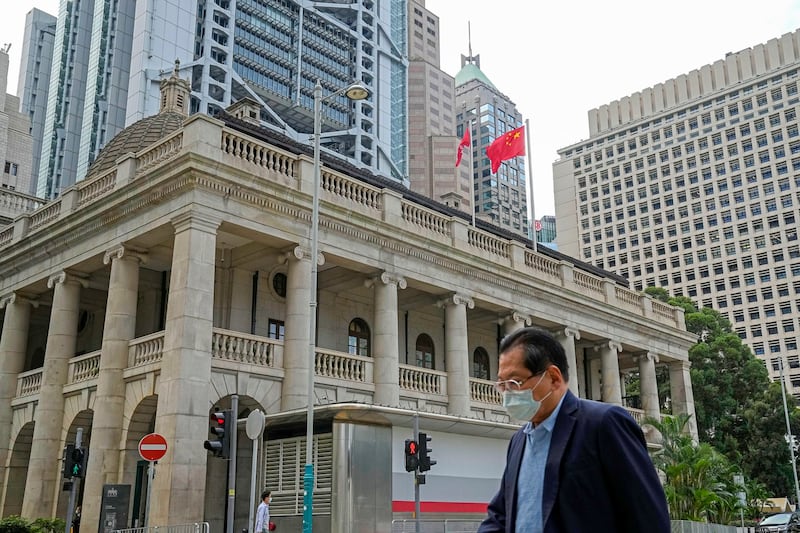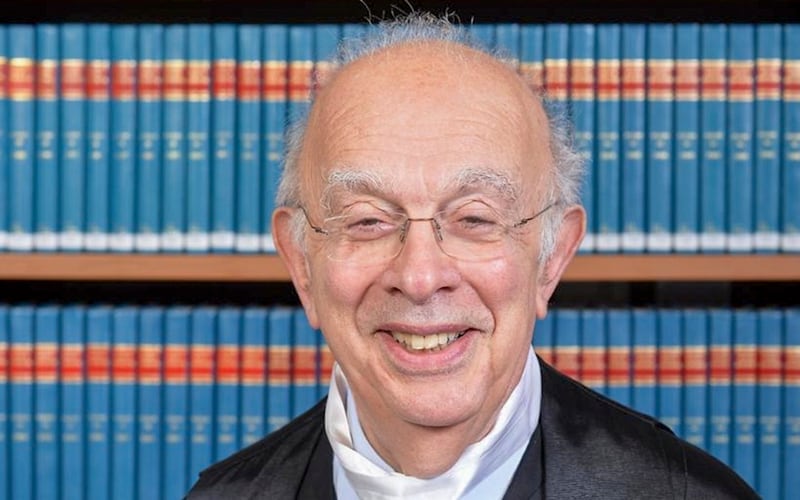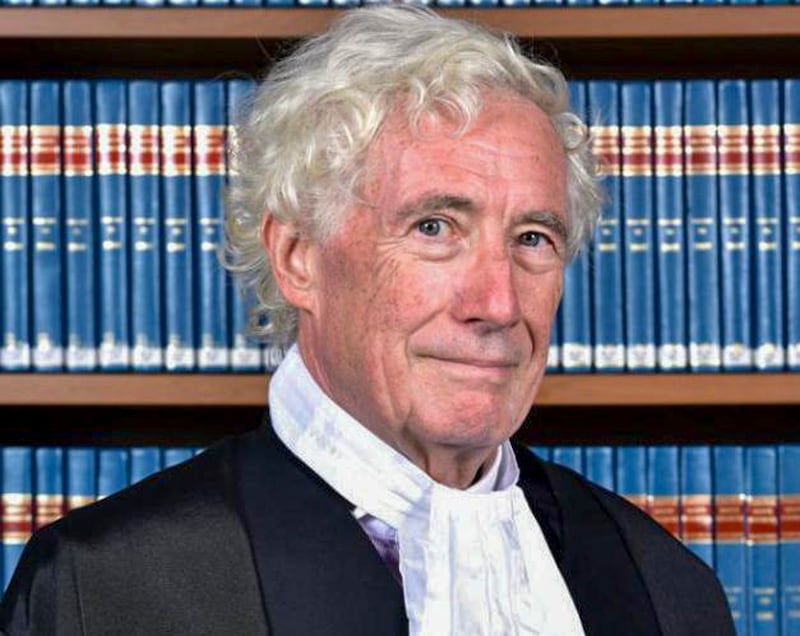Two senior British judges have resigned from Hong Kong’s highest court, with one citing the "political situation" in the city weeks after the authorities passed a second security law adopting China's vague and sweeping definition of a 'state secret.'
Jonathan Sumption and Lawrence Collins, who had both been serving as non-permanent overseas judges in Hong Kong's Court of Final Appeal -- a post that is often seen as a bellwether of confidence in post-handover judicial independence -- tendered their resignations, the Hong Kong government said in a statement on Thursday.
The announcement has sparked fresh concerns over Hong Kong's ability to maintain itself as a separate, common law jurisdiction in the face of huge political pressure from the ruling Chinese Communist Party to implement a similar "national security" regime to that already under way in the rest of China.
The resignations come just a few weeks after Hong Kong passed a second security law, known as Article 23, that analysts say effectively imports the mainland Chinese concept of "national security," which includes cracking down on political dissent and criticism of the authorities, into the city's judicial system, which was once famed for its impartiality.
The recent conviction of 14 former democratic lawmakers and pro-democracy activists for "subversion" for organizing a democratic primary in a bid to secure a majority in the Legislative Council has also highlighted how definitions of "national security" offenses have largely shifted to Beijing's interpretation.
Collins told The Associated Press that his resignation was “because of the political situation in Hong Kong," adding that he continues "to have the fullest confidence in the court and the total independence of its members," while Sumption said he would make a statement next week.
Court of Final Appeal
There are currently eight judges from the U.K., Australia and Canada still sitting on the Court of Final Appeal, which replaced Britain’s Privy Council as the city’s highest judicial authority after the 1997 handover to Chinese rule. Usually, an appeal panel would include the chief justice, three Hong Kong judges and a non-permanent judge who could be a foreign national.

Sumption and Collins aren't the first overseas judges to step down following the imposition of the National Security Law by Beijing in 2020. Non-permanent Court of Final Appeal judges Robert Reed and Patrick Hodge stepped down in March 2022 citing the crackdown on dissent under that law.
Australia-based lawyer and rights activist Kevin Yam said the resignations show that the judges "have lost confidence in the city's executive and legislative arms.
He said the city's judicial independence has been undermined by "bad lawmaking."
"It doesn't matter how independent a judge is; they must ultimately judge cases according to the law," Yam said. "If the laws are very bad, then [independence] is of no use."
Exiled former pro-democracy lawmaker Ted Hui, also a lawyer, said he believes the conviction of the 14 pro-democracy activists was a turning point for confidence in Hong Kong's judiciary.
"The case of the 47 activists was a key turning point, because ... international criticism was unprecedented, and the verdict was highly political," Hui said. "I also think the two judges would have faced great criticism if they had stayed on at the Court of Final Appeal."
"They may have said that they have faith in the independence of Hong Kong judiciary to be polite, but if they really had that confidence, they wouldn't be leaving," he said. "This is a vote of no confidence, but with their feet."
Regrets
Hong Kong's Department of Justice expressed “regret” at the resignations, but said it was grateful for the judges’ contribution.
"This incident will not shake or impair DoJ's determination and confidence in upholding the rule of law, including the independent judicial power exercised by the courts," the department said in a statement.

The city's Chief Executive John Lee also expressed "regret" about the resignations on Friday, but repeated government assurances that Hong Kong's promised rights and freedoms had been unaffected by the crackdown launched in the wake of the 2019 pro-democracy movement.
"Hong Kong has transitioned from chaos to order," Lee said in a reference to the 2019 pro-democracy protests. "The only difference is that national security is now better safeguarded, [while] the safety and stability of Hong Kong is now better upheld."
Chief Justice Andrew Cheung said the judiciary would continue to uphold the rule of law and judicial independence in Hong Kong.
"Suitable candidates from overseas common law jurisdictions will continue to be appointed to the Court as Non-Permanent Judges," Cheung said in a statement on Friday.
"All judges and judicial officers will continue to abide by the Judicial Oath and administer justice in full accordance with the law, without fear or favor, self-interest or deceit," he said.

Both Sumption and Collins were listed as former judges on the top court's website on Friday.
Their resignation came as legal experts warned that the Article 23 legislation has brought with it a "multitude" of business and legal risks, including to political activists, international NGOs and lawyers.
‘Remain a fantasy’
The London-based rights group Hong Kong Watch quoted legal experts as saying that the principle of national security is now "supreme" in Hong Kong's legal and political systems.
"Any notion that Hong Kong can simply switch its focus from security to the economy…will remain a fantasy as the world loses confidence in Hong Kong’s ability to serve as Asia Pacific’s top financial center," the group said in a 40-page report on the impact of the new law published on June 6.
"As with the People's Republic of China, national security will take precedence over everything else," the report said.
This is in line with similar moves in China, where foreign businesses are now limiting their exposure to such risks, it said.
It warned that "a wide barrage of new offenses ... have unreasonably low bars for conviction," and that many offenses don't require even incitement of violence to achieve a conviction.
"In some cases, mere recklessness suffices to complete the offense, lowering the bar of conviction to dangerously low levels," the report said.
It warned that the Article 23 legislation makes ample provision for authorities in Hong Kong to pursue their opponents in exile, as well as for the targeting of normal advocacy, lobbying, academic research and reporting activities by businesses or NGOs under clauses relating to "foreign collusion" and "foreign interference."
"Institutional convergence between Hong Kong and mainland China will continue to erode Hong Kong’s strength and attractiveness as a vibrant business hub as we once knew it," the report concluded.
Translated by Luisetta Mudie. Edited by Malcolm Foster.
